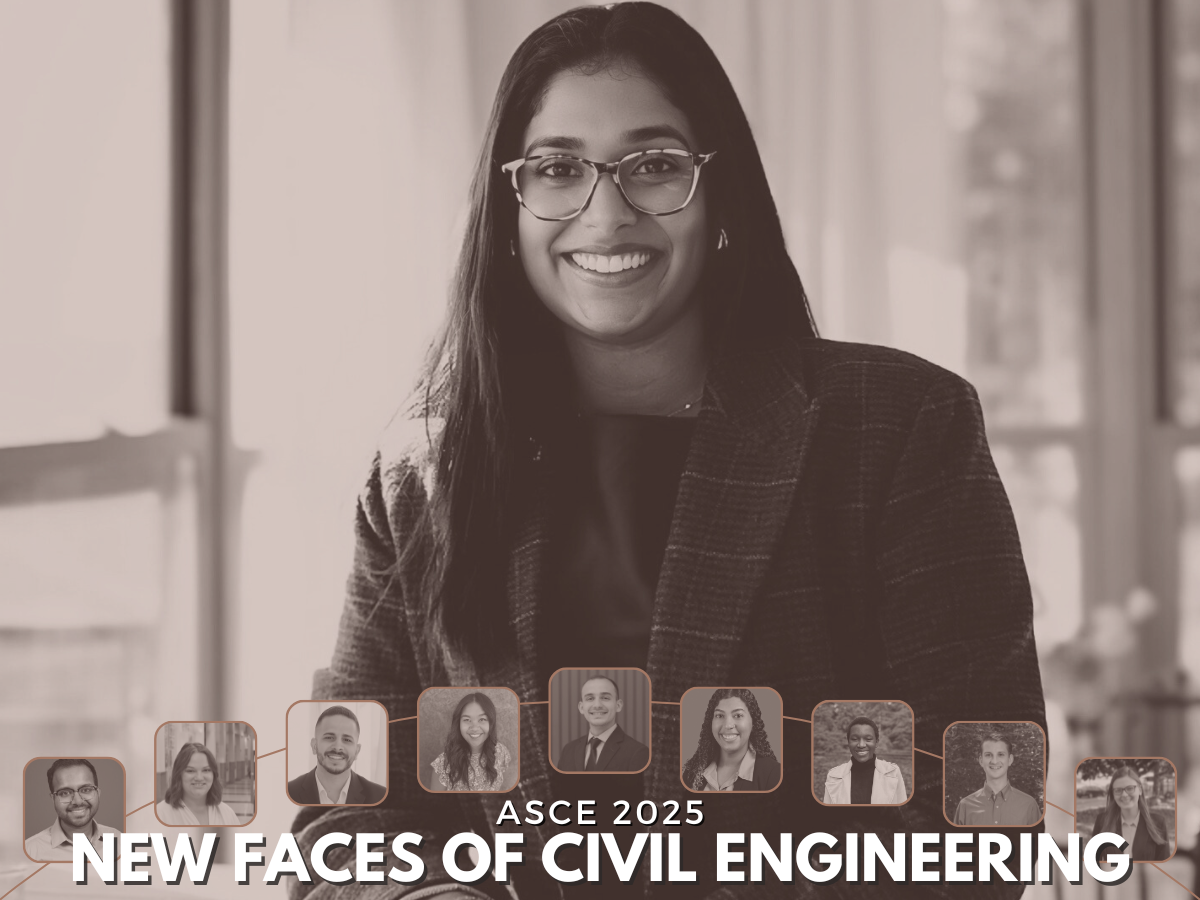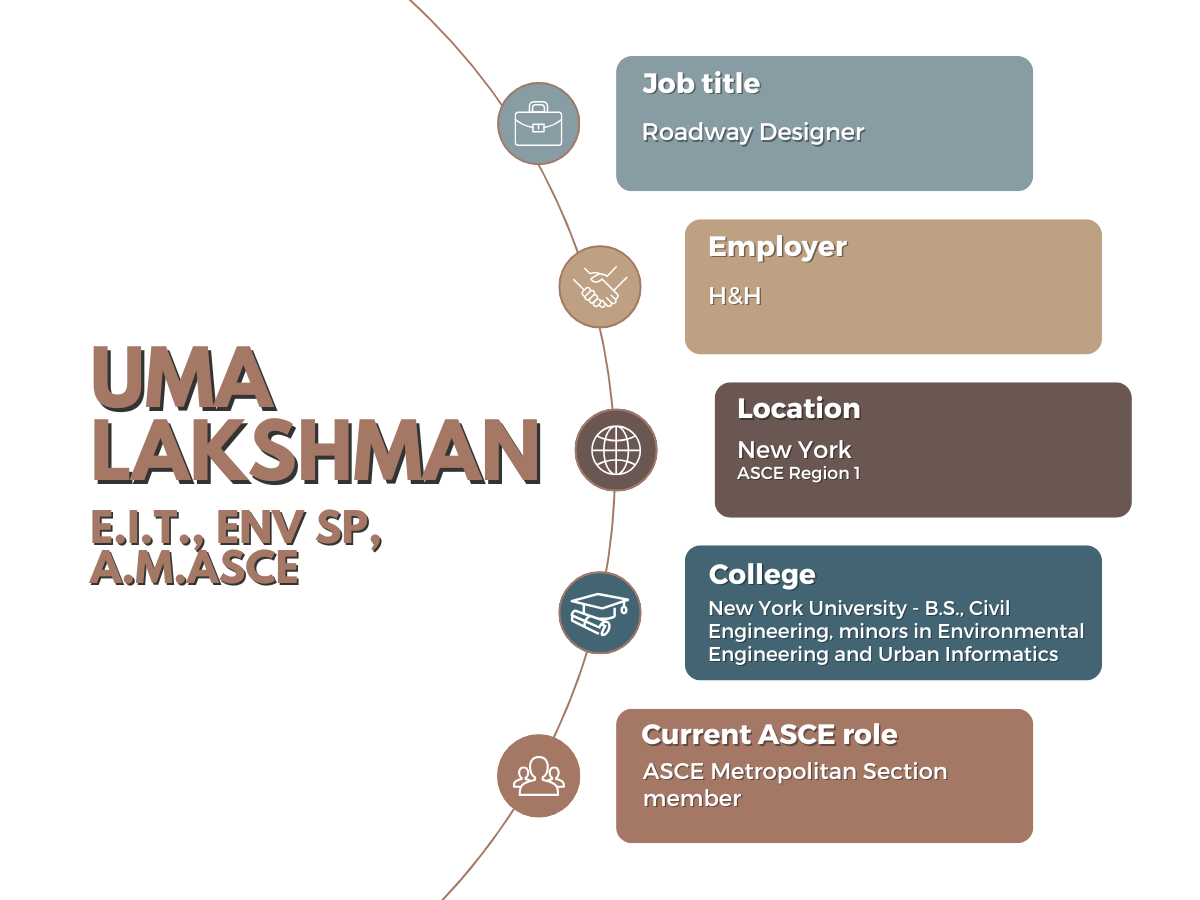

The concept of "sustainable infrastructure" has gotten a lot of buzz. But there is a growing movement to design bridges, roadways, and buildings that respond to the needs of local communities.
Uma Lakshman wants to change the way we view sustainable design.
"Companies can implement infrastructure, but it might not be sustainable to the development of the community," she said. "It might not address local needs. It might not be able to be maintained and operated by the community."
To convey the importance of community understanding, Lakshman shared an example of a popular shoe brand’s donation misstep. The shoe company is known for its initiative to give a pair of shoes to someone in need for every pair purchased. The program intended to provide footwear for impoverished people, but often the gift was mismatched to the current needs of the community.
"One day, a town in Africa received a school bus full of shoes, which just got dumped on them," she said. "They already had footwear from their local craftsman, so that gift inadvertently bypassed local expertise and produced waste."
Bridging these gaps in understanding requires a diverse engineering workforce. Lakshman has firsthand experience with biases in the engineering field and is an advocate for women and people of color in the industry.
"It can be hard for women to navigate the workforce, where we see a boys’ club culture," said Lakshman. "So how do we foster that inclusivity? That's a topic on my mind."
As president of the New York Professional Chapter of Engineers Without Borders, she serves as a mentor to college students while leading multiple major international projects. She is also on the scholarship committee of the Women in Transportation Seminar Greater New York Chapter and has worked on a variety of sustainable infrastructure projects across the United States.
ASCE has honored Lakshman as a 2025 New Face of Civil Engineering.
She recently spoke with Civil Engineering Source about her career.
Civil Engineering Source: What’s the accomplishment or aspect of your career so far that you’re most proud of?
Uma Lakshman: I am proud to be the president of the New York Professional Chapter of Engineers Without Borders. Being a part of EWB has been totally different than any other volunteer work I've done.
New graduates entering the workforce can feel lost at first. For example, I struggled to use my newfound free time in a way that aligned with my values and skills. Then, I came across Engineers Without Borders and started to discover this huge community of like-minded people. I had never felt so at home, so I wanted to get involved on a bigger scale.
I was membership chair for a few years, and I transitioned into being president around a year ago. I am thrilled with everything we have accomplished so far in my presidency.
We are working on five international projects, and our team recently completed a few EWB projects. In 2025, we started designing a new rainwater catchment system. It will supply clean water to a school in Kwale, Kenya, that EWB has partnered with for 10 years. It is rewarding to manage passionate volunteers.
Before my presidency, we lost touch with some student chapters due to COVID. Our role as a professional chapter is to be the liaison between the student chapters and headquarters in Denver.
During my tenure, we reconnected with seven student chapters. I enjoy bonding with these young, bright minds and hearing their fresh perspectives.
In college, I wanted someone to guide me like an older sister, so, I’m happy to provide that to students.
Source: What kind of impact do you hope to make on the profession?
Lakshman: I would love to redefine sustainability. Traditionally, we consider emissions, air quality, noise pollution, materials, and the long-term public benefit of an infrastructure project.
I learned about these textbook sustainability topics while earning my Envision license. I worked extensively on the Envision accreditation of JFK Terminal 6, which is still in the long process of being credited.
I had that conventional background, but through Engineers Without Borders, I learned that there is another facet to sustainability.
We must ask ourselves: Are we listening to the community members’ interests? Are we ensuring that the infrastructure is sustainable for maintenance, operation, and the environment? I encourage engineers to listen and collaborate with locals.
Source: Your commitment to empowering women in engineering has been a major part of your career. Can you talk about what inspired your dedication to supporting women in the field? What are the most powerful experiences you've had while helping other women navigate the engineering field?
Lakshman: My journey to empower and support women has been one with a lot of growth and maturity. The environment is difficult to navigate, and I made so many mistakes when I was younger. I used to try and fit in with “the boys’ club” to be “one of them.” I ended up feeling disconnected from other women and myself.
Now, I embrace inclusivity and uplift young mentees. My first mentor in my career, Danielle Selzer, showed me that women collaborating is incredibly powerful. She worked with me with such patience and care that she fostered a space for me to thrive. Danielle taught me to “create your own club” rather than try and conform, and that is so profound.
It’s enriching to spend time with strong, intelligent, and driven women like my mom and my grandmother. As a child, I saw my mom thrive as a software engineer in a male-dominated field. Her career normalized the concept that women can succeed in many ways with love, dedication, and support. My grandma has always adopted a “no nonsense” approach, which led her to be successful in her career. As she got older, she softened in her approach, and was more caring and empathetic, which allowed her to better connect with the communities she worked with as a teacher.
Empowerment involves self-sufficiency and confidence. I was discussing the concept of empowerment with some peers at the Women in Transportation Seminar Gala. In that organization, we address the financial aspect of self-sufficiency head-on by awarding $27,000 in scholarships to young women studying transportation in the New York area. Through conversation, we help the young women make positive career decisions so they can succeed.
I want to make a supportive workplace for the next generation, so that all workers feel comfortable asking questions and confident with their skills.



